Key takeaways:
- The death penalty raises profound ethical issues and disproportionately affects marginalized communities, creating a cycle of pain rather than closure.
- Families of those executed often experience deep psychological impacts, struggling with feelings of emptiness and unresolved grief.
- Healing involves embracing emotions, finding community support, and transforming personal pain into acts of kindness and compassion.
- Advocating for anti-death penalty reform emphasizes the need for rehabilitation over retribution, fostering a justice system that prioritizes human dignity.
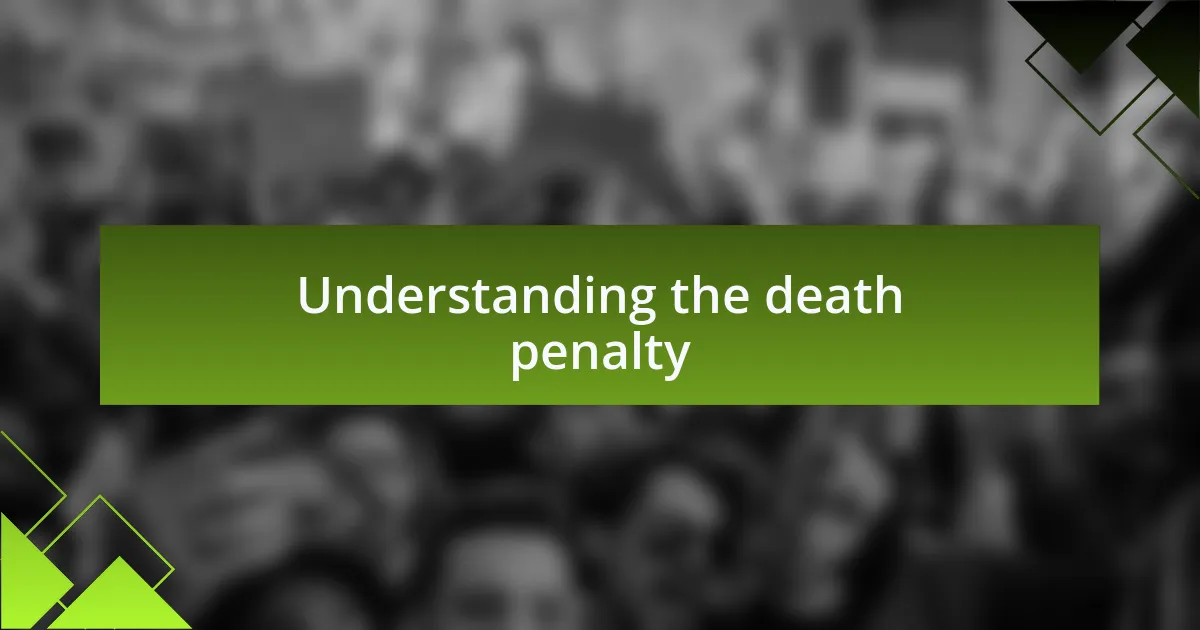
Understanding the death penalty
The death penalty is often viewed as a form of ultimate justice, yet its implications run deep and touch the lives of many people involved. I remember a friend who fervently supported capital punishment until he attended the execution of a loved one. That experience shattered his view, making him question whether an eye for an eye truly brings closure or just deepens the cycle of pain.
This method of punishment raises profound ethical concerns. How can we, as a society, justify taking a life when so many variables can taint the fairness of a trial? From wrongful convictions to socioeconomic disparities, the justice system is not infallible. I often wonder if the families of those executed find peace, or do they too carry the heavy burden of loss and remorse?
Moreover, we must acknowledge the darker side of the death penalty, where it disproportionately affects marginalized communities. I’ll never forget a conversation with a community leader who told me how the threat of execution loomed larger over some neighborhoods than the crime itself. This reality invites us to reflect on whom we are truly punishing and whether the practice itself is serving any constructive purpose.
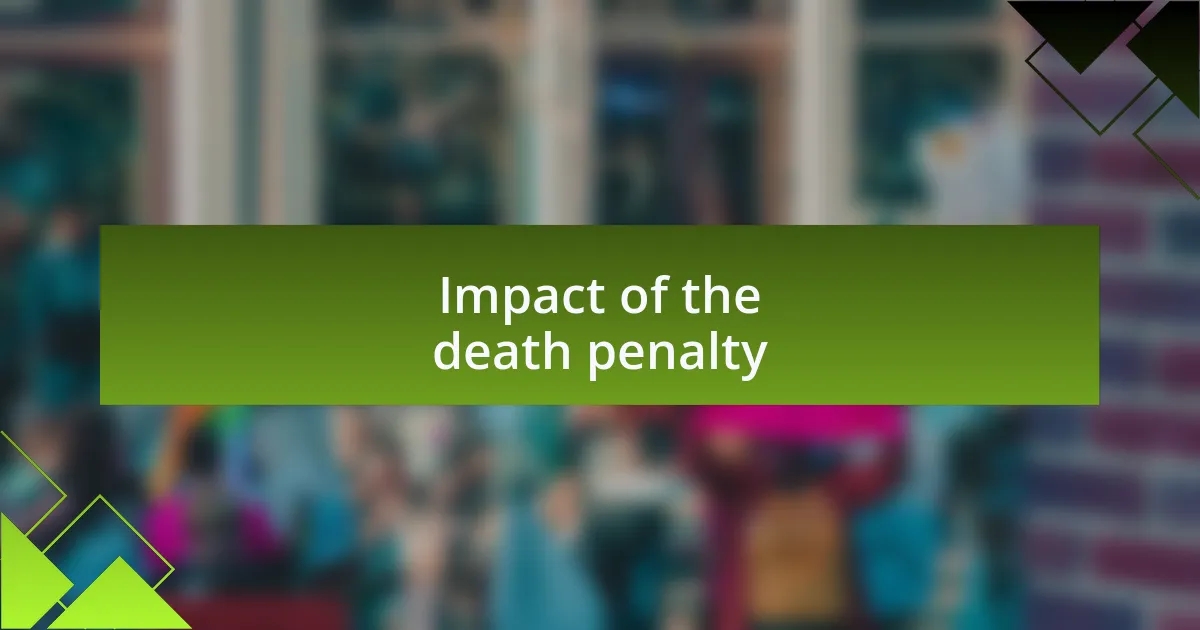
Impact of the death penalty
The death penalty casts a long shadow on families, friends, and communities. After losing a loved one to execution, I witnessed firsthand how the psychological toll can spiral into despair and anger. It makes me wonder—does justice truly serve those left behind, or does it only exacerbate their suffering?
In conversations with others who face similar losses, I’ve found a common thread of emptiness. Many expressed that the finality of death robs them of the chance for closure or reconciliation. It’s heartbreaking to realize that, while society may see an executed individual as a criminal, to many, they are merely a brother, sister, or child, torn from their lives without a second thought.
Society also feels the ripple effects of capital punishment beyond the individual cases. During a community forum I attended, discussions highlighted how fear and stigma linger long after the execution date. People seemed to grapple with unanswered questions about morality and societal values—does ending a life create a safer world, or does it sow more division and trauma? This relentless cycle of pain challenges us to rethink the real impact of such irreversible measures.
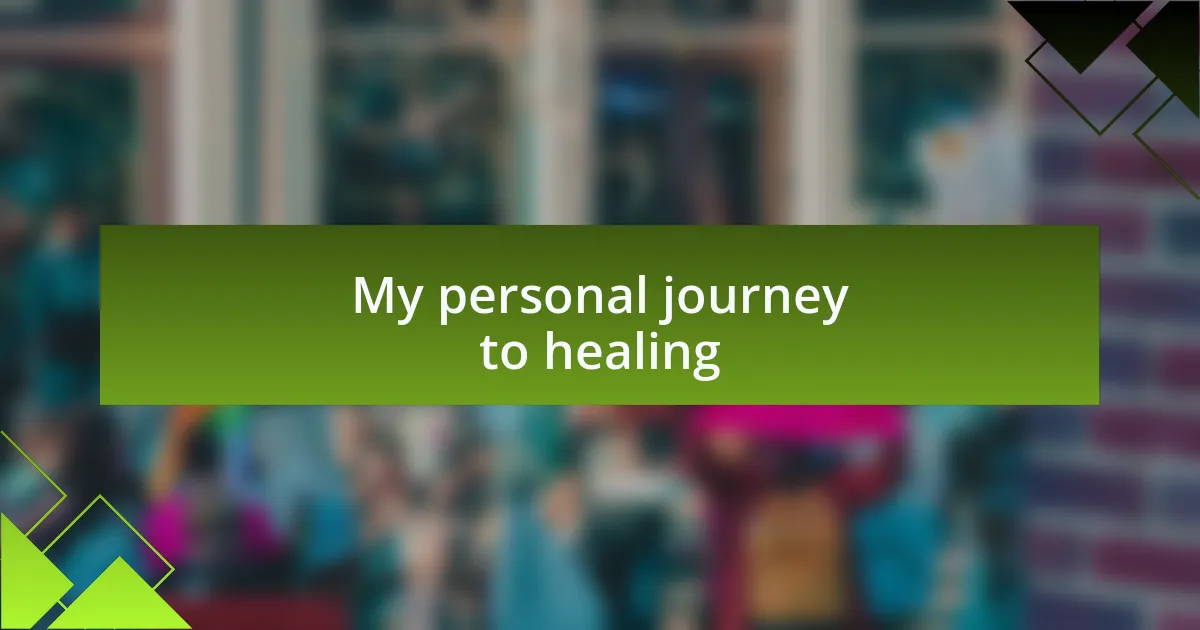
My personal journey to healing
Healing has been a slow and challenging journey for me. I remember sitting in silence for days, feeling the weight of sorrow pressing down on my chest. It was in those lonely moments that I started to realize the importance of embracing my emotions rather than burying them. How could I truly move forward if I didn’t acknowledge my pain?
One poignant day, I found myself visiting the park where we often spent time together. I closed my eyes and let the memories wash over me—the laughter, the conversations, the simple joys. It became clear that holding onto those memories was a part of my healing, not forgetting them. I asked myself, can love truly die, or does it transform into something different?
Through this process, I discovered the power of community. Sharing my story with others who had similar experiences created a sense of belonging I had long sought. We laughed, cried, and held each other up on bad days. It made me think—why do we struggle alone when solidarity can be our greatest source of strength? Through these connections, I began to find peace, understanding that healing is not a destination but a continually evolving path.
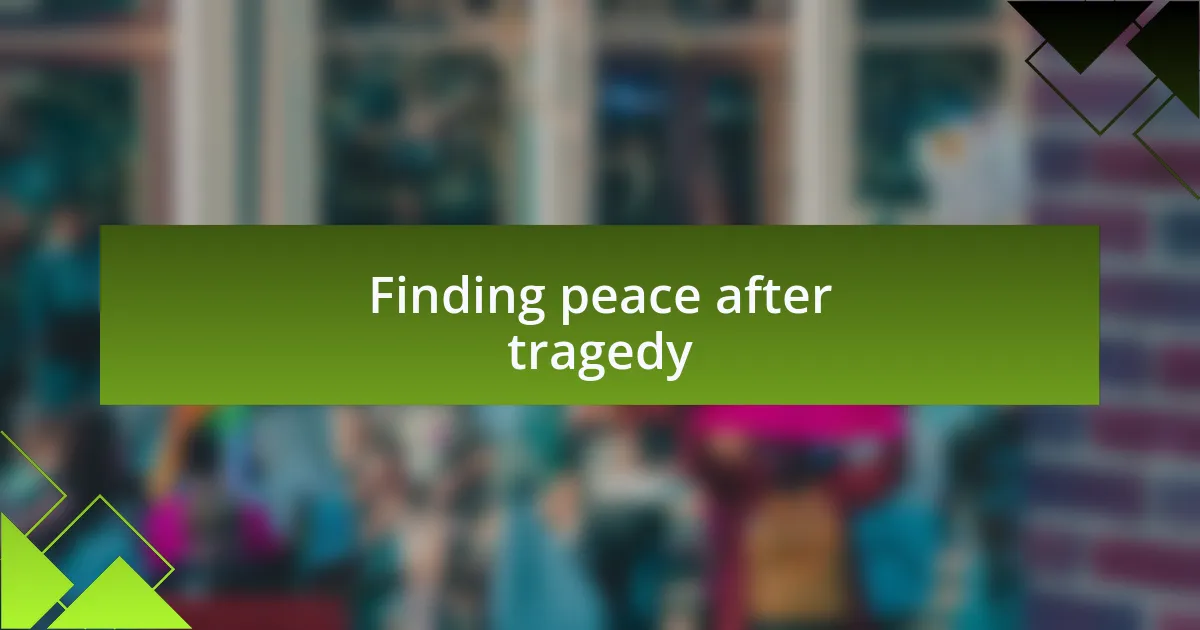
Finding peace after tragedy
Finding peace after tragedy can feel impossible at times, yet it has been a crucial aspect of my healing process. I remember standing in the kitchen one evening, the aroma of my favorite meal filling the air, and suddenly, I was overwhelmed by a longing for my loved one. Instead of turning away from that feeling, I invited it in, allowing grief to coexist with the fleeting comfort of the moment. How often do we deny ourselves the chance to feel joy amidst the sorrow?
One Sunday morning, I decided to take a walk in their favorite spot by the lake. I found myself lost in reflection, noticing the delicate ripples on the water’s surface. As I sat there, I realized that peace doesn’t come from forgetting—rather, it emerges when we learn to embrace the coexistence of joy and pain. Is it possible that by allowing ourselves to feel the full range of our emotions, we can uncover a deeper sense of tranquility? For me, the answer has been a resounding yes.
In time, I discovered that acts of kindness towards others were incredibly healing. Volunteering at a local shelter brought purpose into my life and helped me transcend my own sorrow. It became evident that when we turn our pain into compassion, we not only honor our memories but also pave the way for peace within ourselves. Have you ever noticed how helping others can lighten the burdens we carry? It’s a reminder that, even amid tragedy, there is an opportunity for love and connection.
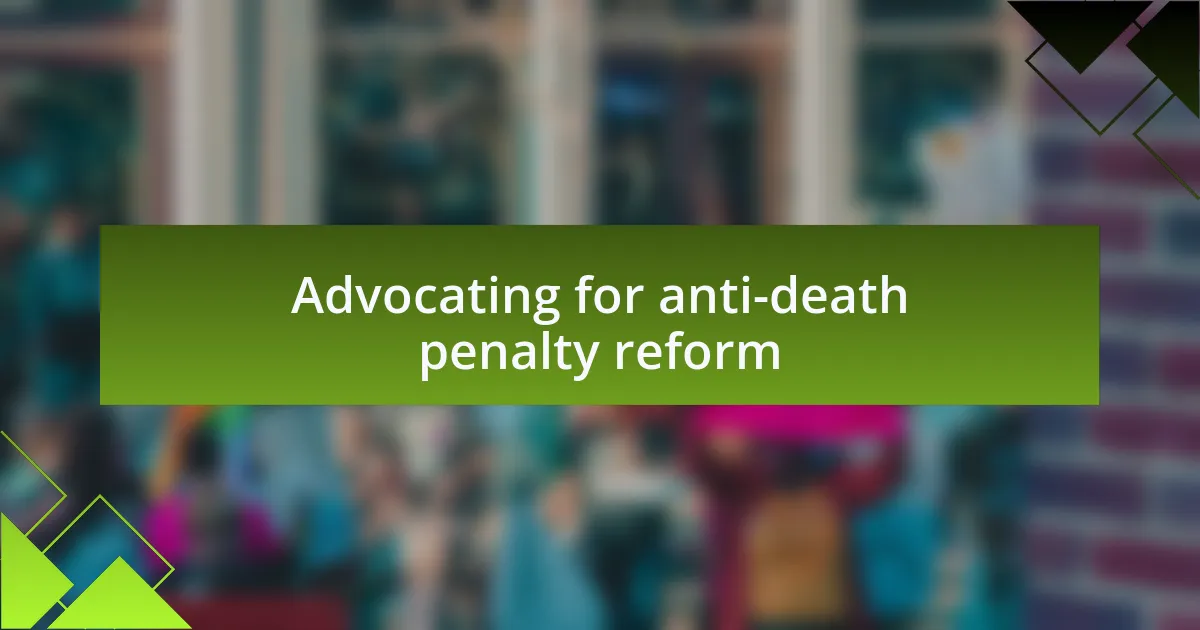
Advocating for anti-death penalty reform
Advocating for anti-death penalty reform requires a deep understanding of the human experience and the impact of loss. I remember a moment of clarity while reading a survivor’s account of life without their loved one, who had faced execution. Their story illuminated the irreversible consequences of such decisions, prompting me to question: how can we justify a system that takes lives instead of fostering healing?
In my journey, I’ve met countless individuals who, much like me, wrestle with the aftermath of violence and injustice. Their voices underscore the need for a shift in how we address crime and punishment. Isn’t it worth considering whether true justice is found in rehabilitation rather than retribution? Each conversation reinforces my belief that we must advocate for reforms that prioritize human dignity over vengeance.
The emotional scars left by execution resonate beyond the individual—it impacts families, communities, and entire societies. I find myself pondering how many potential lives and stories are extinguished as a result of this policy. When I speak with fellow advocates, I often ask, “How can we build a future where we choose compassion over punishment?” It’s not just a question; it’s a call to action for all of us to reimagine the path to justice.